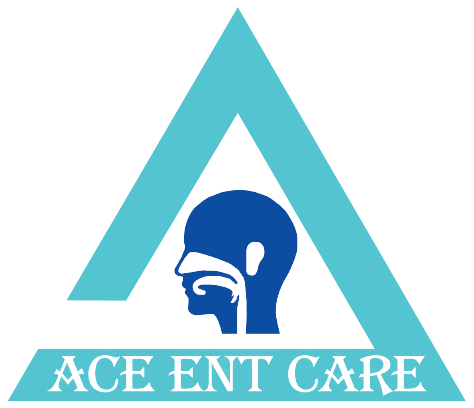
Caring for Your Hearing Aids
- 21 August 2025
Hearing aids are not just medical devices—they are life-changing tools that restore clarity, connection, and confidence. For people with hearing loss, they make communication easier, improve safety in daily life, and greatly enhance overall quality of life.
But like any valuable investment, hearing aids require proper care and maintenance. Neglecting them can lead to poor sound quality, frequent breakdowns, and costly repairs. The good news? With a few simple habits, you can extend the lifespan of your devices and enjoy better hearing every day.
This article will guide you through the best hearing aid care tips—from cleaning and storage to professional checkups—so you can get the most out of your hearing aids.
Why Hearing Aid Care Matters
Your hearing aids sit inside or behind your ears all day, exposed to sweat, earwax, dust, oils, and moisture. These elements can:
- • Block sound and reduce clarity
- • Damage sensitive microphones and speakers
- • Shorten battery life
- • Cause skin irritation or infection
- • Lead to costly repairs or early replacement
By following proper hearing aid maintenance practices, you not only protect your investment but also ensure consistent, high-quality hearing. Remember: Caring for your hearing aids means caring for your hearing health.
Essential Hearing Aid Care Tips
Let’s explore the most important steps for how to take care of hearing aids effectively:
1. Keep Your Hearing Aids Dry and Clean : Moisture is the number one enemy of hearing aids. Even a small amount of sweat, humidity, or water exposure can damage the delicate electronics inside.
Best practices:
- • Always remove hearing aids before showering, swimming, or visiting a sauna.
- • After wearing them, wipe with a soft, dry cloth to remove sweat or wax.
- • Use hearing aid cleaning tools (brushes, wax picks, microfiber cloths) recommended by your audiologist.
- • Store them overnight in a hearing aid dryer or dehumidifier, especially in humid climates.
2. Store Hearing Aids in a Safe Case : Proper storage prevents damage, dust buildup, and accidental loss.
Tips:
- • Use the case provided by your hearing aid provider.
- • Keep the case in a cool, dry place, away from direct sunlight or heat.
- • Always store them out of reach of children and pets.
3. Change or Recharge Batteries Regularly :A weak battery can cause distorted sound, sudden cut-offs, or device failure.
Tips for battery care:
- • Replace disposable batteries as soon as you hear warning beeps.
- • For rechargeable models, charge them fully overnight.
- • Open the battery door when not in use to save energy.
- • Always carry spare batteries when traveling.
4. Protect Hearing Aids from Heat and Moisture : Extreme conditions can permanently damage your devices.
Do’s and Don’ts:
- • ❌ Don’t leave them in a hot car or near heaters.
- • ❌ Don’t wear them while using a hair dryer or cooking over steaming pots.
- • ✅ Use sweat covers during exercise or outdoor activities.
5. Schedule Regular Audiologist Checkups: Even with good daily care, professional maintenance is essential.
Benefits of regular checkups:
- • Deep cleaning of earwax or debris
- • Sound performance testing and adjustments
- • Software updates (for digital models)
- • Early detection of potential issues
- • Personalized advice for your lifestyle
Bonus Tips for Long-Lasting Hearing Aids
- • Handle with clean, dry hands
- • Avoid dropping your devices.
- • Label left and right aids to avoid mix-ups.
- • Inspect ear molds and domes for cracks or wear.
- • Turn off hearing aids when not in use.
Mistakes to Avoid
Many users unintentionally damage their devices. Avoid:
- • Wearing hearing aids in the shower or pool
- • Using sharp objects to clean earwax
- • Spraying hairspray, perfume, or lotion near ears
- • Leaving them in damp bathrooms
- • Ignoring wax filters or guards
How Proper Care Improves Your Hearing Experience
With consistent care, you’ll enjoy:
- • Clearer sound quality in conversations, music, and media
- • Fewer breakdowns, reducing repair costs
- • Longer device lifespan, maximizing your investment
- • Confidence and independence knowing your aids won’t fail unexpectedly
When to See an Audiologist
Seek professional help if you notice:
- • Whistling or feedback noises
- • Weak or distorted sound
- • Sudden silence or power loss
- • Physical damage like cracks
- • Pain or irritation while wearing
Why Choose KK Health Care Center
At KK Health Care Centre, led by Dr.Sahil Kapoor, patients receive more than just hearing aids—they receive personalized hearing care.
Here’s what makes KK Health Care Centre unique:
- Comprehensive hearing tests
- Wide range of digital hearing aids
- Customized fitting and tuning
- Professional cleaning and servicing
- Ongoing support and patient education
Take the NextStep
Don’t wait until problems arise. Protect your hearing aids today and experience the joy of clear, confident communication.
📍KK Health Center | Dr.Sahil Kapoor
📞Book an appointment: +91 81787 74813
🌐Visit:www.drsahilkapoor.com
